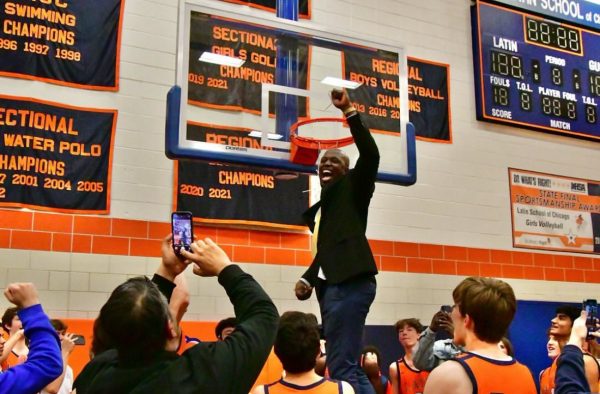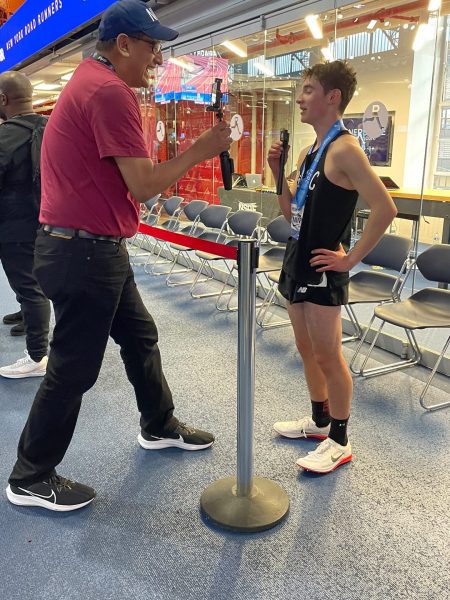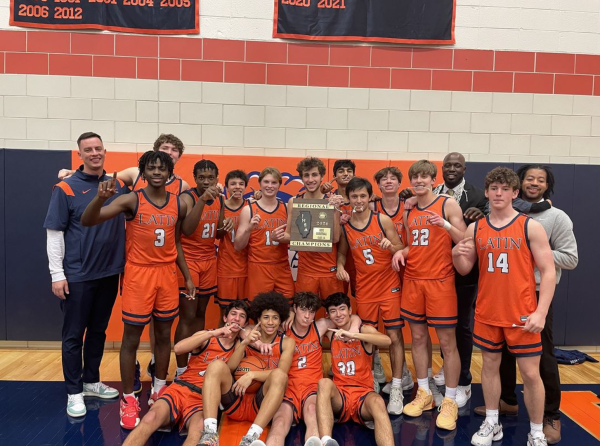Update on 2021 Tokyo Olympics: Why are the Olympics important to Latin Students?
Continued uncertainty about whether Japan will host the Summer Olympics this year has affected several Latin families that had originally planned to travel to Tokyo in 2020 for the Games.
“My family wanted to attend the Olympics last summer because we love going to sporting events and it would give us a chance to visit a country none of us have ever been to,” sophomore Alice Mihas said. “Marianne, my sister, loves track, and I love judo, and going to the Olympics would give both of us a chance to see the best track and judo athletes in the world compete.”
Freshman Reese Benford shared a similar sentiment. “My family wanted to attend the Olympics because it is a once-in-a-lifetime experience that is inspirational to growing athletes like myself and my brother,” Reese said. “I love seeing athletes pour their hearts and souls into their sports, [and] the best athletes in the world competing against each other is a unique and incredible sight. I also like to observe the methods that athletes use to achieve success, so the Olympics is the best place to learn those skills.”
Students not only agree that the Olympics are significant for athletes, but they also believe that they are meaningful to the world. “People in every country tune into the Olympics and root for their country,” Alice said. “The Olympics are a time for people to come together.”
“I find meaning in the unity of fans,” Reese noted. “For most sports, it is one country watching one event, but, in the Olympics, everyone is watching, and it gives the world a sense of pride and unity.”
In contrast to Alice and Reese, junior Sofia Presser said, “I don’t normally watch the Olympics because I don’t find too much interest in the sports that they are highlighting.” However, she went on to say, “If there are younger athletes closer to my age, I will watch to see how they perform. I find it interesting to see younger kids and adults so successful in their careers at such a young age.”
The Olympic Games originated in Athens, Greece, roughly 3,000 years ago, and the first modern Olympics took place there in 1896. Ever since 1994, the summer and winter Olympics have been held separately and alternated every two years, with the stated goal of cultivating human beings and contributing to world peace. The Olympics are meaningful across borders, to all different types of people, and Latin students are no exception.
Junior Zoe Weiss said she loves watching the Olympics on TV. “I really love watching all the talent and supporting all the athletes,” she said. “I think it’s really fun to watch all the different sports and follow along.”
The 2020 Summer Olympics, rescheduled because of the COVID-19 pandemic, are now set to take place in Tokyo between July 23 and August 8, with the Paralympics from August 24 to September 5.
Thomas Bach, president of the International Olympic Committee, told Kyodo News in Japan last month, “We have, at this moment, no reason whatsoever to believe that the Olympic Games in Tokyo will not open on the 23rd of July in the Olympic stadium in Tokyo.” He added, “There is no Plan B, and this is why we are fully committed to making these games safe and successful.”
In an interesting twist, though, the state of Florida decided to throw their hat in the ring in case Tokyo is unable to host.
On January 25, Florida’s chief financial officer Jimmy Patronis sent a letter to Thomas Bach that said, “With media reports of leaders in Japan ‘privately’ concluding that they are too concerned about the pandemic for the 2021 Olympics to take place, there is still time to deploy a site selection team to Florida to meet with statewide and local officials on holding the Olympics in the Sunshine State. I would welcome the opportunity to pitch Florida and help you make the right contacts to get this done.”
Jimmy Patronis and Thomas Bach have reportedly been in communication, but there is no indication at this point that these Summer Olympic Games will be moving to the United States.

Lily “Pickle” Coleman (22’) is a senior at Latin and is thrilled to be serving as Media Editor this year. In her time on The Forum staff, Pickle...

















































